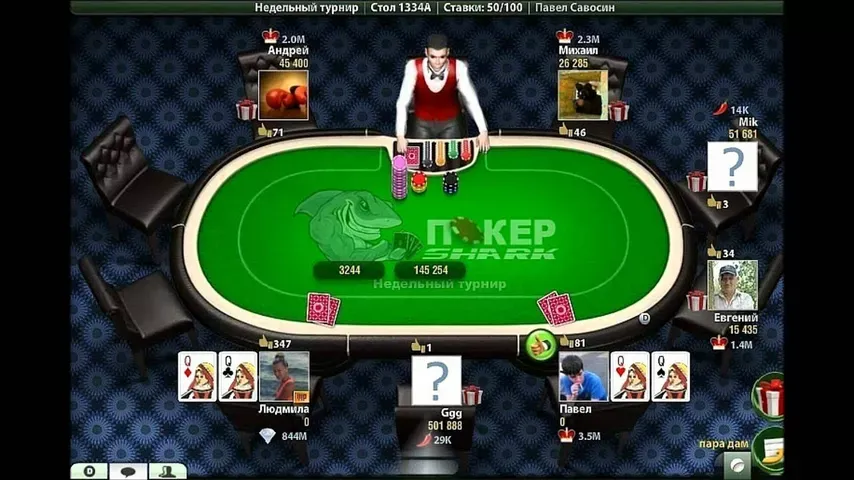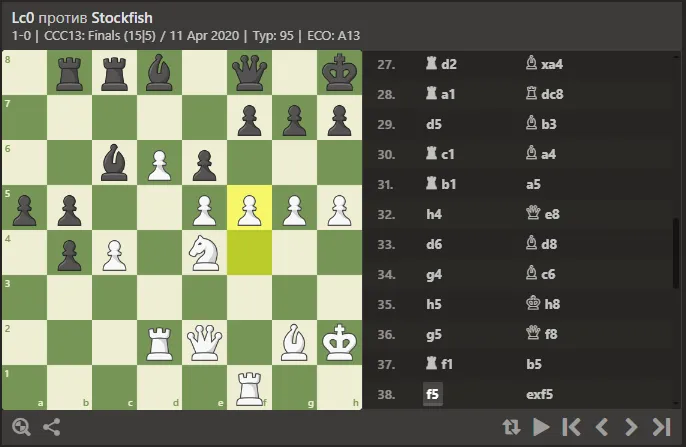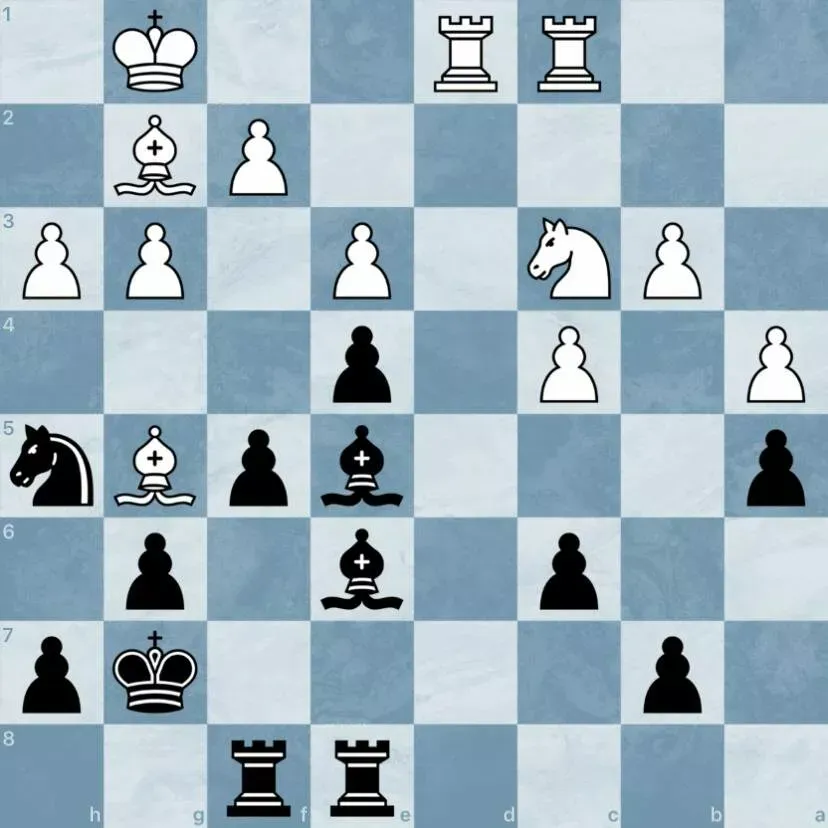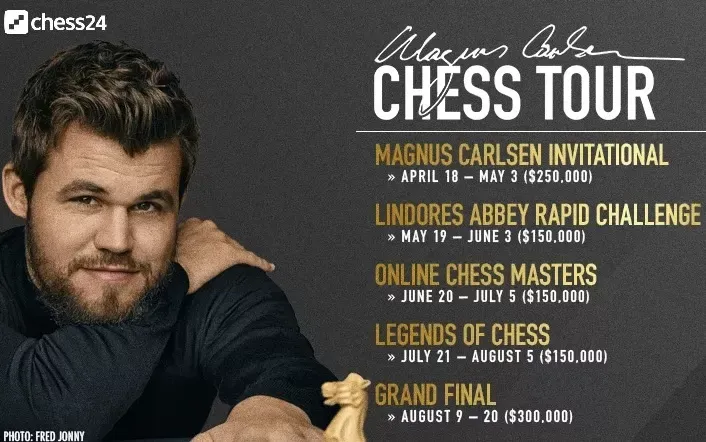— Hi, Daniil! You are one of the strongest chess players in the world, but poker also plays an important role in your life. Tell us how you first got acquainted with the game?
— Hi! I guess it comes from my family, especially my dad. He played preference and deberts on the Gambler platform, and, by the way, very well. At the dacha, I played fool with my grandmother. So the idea that cards are not a mortal sin has been with me since childhood.
My memories of poker's appearance in my life are more vague. When I was a teenager, everyone was on VKontakte. There was an absurd application called Poker Shark. At first I played there for play money, then for play money on PokerStars.

— Do you remember your first real poker win?
— I got there in some freeroll on Stars, if you can call it a win. I was third or second, they gave me about thirty dollars. Pennies, but it felt like a real holiday!
— What role does poker play in your life now?
— I have two close friends who are regulars, and I play Omaha cash quite often. On holidays, I can even sit in PLO MasterMind. But overall, I'm more of a classic amateur with experience. I won't go into detail about the theory; if something is completely unclear, I'll ask the guys. I watch Triton finals almost always.
— With the advent of solvers, poker theory has changed quite a lot. And how has the advent of AI changed chess? Do you have GTO?
— When comparing chess and poker, it is important to draw the right parallels. Both disciplines are interesting and intellectual, but chess, unlike poker, is not a game with incomplete information, other principles work here.
Legend has it that Doyle Brunson almost took a deck of cards in his hands and dealt them to himself to understand the equity of his hands. There is a "calculator" in chess too. With the advent of AI, it has become incomparably easier to feel the nuances of a particular position and learn to play it more or less sensibly. Previously, this required weeks, now one evening is enough. In this regard, the game has changed a lot.

In a broad sense, the concept of GTO in chess can be applied to the opening repertoire. There are openings with an impeccable reputation, and there are more risky ones. Periodically, you should "add bluffs" and play something a little dubious, because if you "enter" only on a couple of good openings, everyone will prepare only for them. And if you periodically play "nonsense", then your opponent will need more time to prepare.
So yes, there are parallels, but the games are still different. I think poker is a more complex game and closer to real life.
— In an interview with the World Chess channel, you say that chess in your performance is more like poker due to the correct assessment of equity. Can you elaborate on this idea?
— In chess there is, conditionally, a certain "hand strength". In poker you can make a combination – say, two pairs or a set, and in chess there is an objective assessment of the position. At the same time, it often happens that the equity of a monster draw on the flop can be higher than that of the finished combination.
There are situations in chess when it is not worth making the strongest move. A simple example: if you have an hour left and your opponent has a minute, then, all other things being equal, you can deviate from the best (according to the computer's assessment) option within reasonable limits. It is more advantageous to keep more pieces, because it is much harder for a person to play a complex position in time trouble, especially if there are queens left on the board.
Let's say we have a choice – we can go to the endgame with a small advantage, or we can keep an equal, incredibly difficult position with queens. From the point of view of objective evaluation, the first continuation is stronger. But if you have much more time, or you think that you play better with queens, the optimal decision in terms of equity is to leave them and play an objectively equal position, which you will often win in literally a couple of moves.
— I've heard the opinion that poker helps you play chess better: it becomes easier to find common patterns and leaks, not to get hung up on short-term results, to correctly assess your expectations. Does it work the other way around?
Poker helps in chess to the same extent as it helps in life in general. The things you listed will be useful in any discipline. I recently signed a contract with the eSports team Team Spirit. The guys talked a little about how everything is arranged for them. Counter-Strike is very similar to poker! It is also a strategic game in which a well-timed exploit is important.

But chess, on the contrary, is of little help in poker. Unless you are already a big professional and have spent many years at the board, then you understand how the learning process should look like, and it will be easier for you to understand poker software from scratch and correctly build the process of analyzing certain situations.
Analysis of a game or opening from analysis of a hand or a separate line globally differs little. In this sense, chess can help, but no more than any scientific work.
I am not inclined to overestimate chess as a learning tool. The game is interesting, but it will not help in poker any more than Counter-Strike. The best teams also work on strategies, compare different game models.
GipsyTeam recently published a good article on the theory, which explains why in certain situations the solver prefers K6 over K7. Many years of working on chess can also help to understand why it works this way, to understand the game logic.
Let's take two positions that differ in the placement of the outer pawns. A chess solver might say that one position is good for black and the other is bad, although at first glance it's not clear what the difference is. You have to sit down and figure it out. The difference might become apparent five moves later in one of the variations where the placement of the pawns actually matters. Finding answers to such complex questions is exactly what chess solvers teach.
— On the “Book Man” podcast, you said that you regularly read our site, it’s great that the habit has remained.
— The main page is checked every day! The forum is checked less often.
— What do you remember most?
— A lot of things from the forum stuck in my memory. The most vivid one is Forhayley's diary , my friends and I reread it five times. Forhayley, if you suddenly read this — it was all worth it, write more often! We literally took it apart into quotes: The legendary exploit training and many other things have become firmly entrenched in the lexicon.
There were a lot of good materials on the main page, it's hard to single out anything. Almost all the author's interviews or translations are great.
— Did you see the article about the EPT final table scandal? Are there any moves in chess that bring EV but are frowned upon by the community?
– Yes, there is a lot of that. Especially in blitz. There are different degrees of "dirtiness", I would not like to describe in detail. You can simply beat the clock or put a piece on one square, and at the very last moment move it to another.
As in poker, the line is quite fine. It is usually quite difficult to prove that a person did something on purpose. People do not always do bad things on purpose.
In this sense, it is historically difficult for me. I try to play carefully and cleanly, I don’t know what it is connected with – the corresponding training in childhood, or just my nerves still allow it.
When an opponent does something like that, I admit that it's not intentional. It's a bit silly. Let's say a person makes a move at one second and drops all the pieces. I'll always pick them up and only then press the clock. If I don't complain about the opponent, then on average he'll make a move faster. In general, there's a fine line between normal play and something that you can turn to the judges for.
There is also the concept of softplay. In poker, people buy shares from each other, and that's normal. But as an amateur, it's still hard for me to understand where the line is when it gets really dirty.
In chess, it also happens that in tournaments with good prizes, people exchange shares. In some cases, this can influence their decisions. To be honest, I have also been in such situations, it is some kind of gray area, not everyone understands what is frankly unethical, what is ugly, and what is normal. We have discussed this more than once with professional friends, but there is no consensus on this topic.
Poker is more like the Wild West in this sense. For example, Tom Dwan sits down in the Million Dollar Game when the whole world is screaming that he has less than zero money. I also don’t quite understand who he’s playing for, what his stake is, how motivated he is.
My perception of the game live is perfectly described by the legendary hand between Tony G and Hellmuth – "Of course I lied, it's poker, Phil!". Maybe Tony is right, but for me it looks ugly, such episodes greatly reduce the pleasure of poker. With all his shortcomings, Phil is often right in conflict situations. Although watching him get mad is incredibly funny!
Chess has a more "gentlemanly" reputation. Pihanina in poker seems to have been part of the game from the beginning. I don't understand how people sit down to play without fear of teamplay or other similar tricks – remember the case with Imsirovich [Ed. – Ali Imsirovich and Jake Schindler have been accused of multi-accounting and using tellers more than once] or the great hand when Robbi called with jack-high.
In chess, fortunately, it is difficult to get into such a situation. In this respect, I like poker less. After all, it is often a game of honor, and I do not have great illusions about human nature.
It's one thing when people have known each other for a million years, or it's a hypothetical Phil Ivey , who is unlikely to participate in something like this. Although we don't know each other, why not? But if at least one person with a questionable reputation sits at the table, I would already be afraid to play for big money.
— There have been several scandals recently where players played tournaments with open GTO Wizard. Is there anything similar in chess?
— Theoretically, Chess.com bans for opening ChessBase during a game. However, I am sure that in practice this does not always work. As for players, such cases are rare, especially on streams. Kramnik accused Naroditsky of something similar, it did not cause a storm of indignation. But I cannot say with certainty that he is right either.

Basically, we stream a regular online game without prizes, so there are fewer worries. I often feel like I'm playing against a suspicious opponent, but, by and large, in a game without money – I don't care. I came to play for fun anyway, opened the app on my phone with a Negroni. If you want to beat me with the computer and take away some virtual rating – congratulations, I hope it was worth it!
— Let's talk about money. How can a chess player correctly estimate how much he can earn in a year? What makes up the income of the world's top 20 players?
— It's all very individual. Some have sponsors, some play a lot of tournaments with fixed fees — most often for a team, some coach or record training courses at the same time.
There is a strange phenomenon in chess right now – the majority of players’ earnings do not always depend on tournament results. There are various media stories, this year almost everyone who knows how the pieces move has been signed by eSports teams – and I suspect on very different terms.
— In several interviews you said that your expectation per year is about $100-200k. How are things now?
— The expectation remains strangely the same, although the sources of income have changed more than once. This year there is more media activity, but there were also years when I earned money only from the game.
Even during Covid, playing online, oddly enough, brought in about the same amount of money. Before the epidemic, there was no big money there at all. To earn something at the start, you had to play very well. And that year I was showing an excellent level, reached the grand final of the Magnus Tour. But the numbers are still the same.

— Bookmakers offer bets on chess. Is there a higher EV for a professional of your level? Does knowledge of chess and understanding who is in what shape right now help you earn money?
— Knowing chess can certainly help, but it is extremely rare to bet serious money on chess. Perhaps only on a world championship match or a candidates tournament. And in these, as a rule, even the assessments of professionals differ. Or there is a clear favorite from Norway and it is difficult to beat the margin.
— My colleague bet 40 to 1 that Ding would lose the last game of the world championship match in a draw — and that's what happened. Have you ever made such crazy bets?
— I think I can't even bet on chess by law. And I don't want to. To bet $100 on such odds and win is almost insulting!
— What are your chess goals for this year?
— This year is a qualifying year, everything revolves around the World Cup and the Grand Swiss. The results in these two tournaments, as well as traditionally in the World Rapid and Blitz Championships, will determine the overall assessment of the year. We'll see!






















